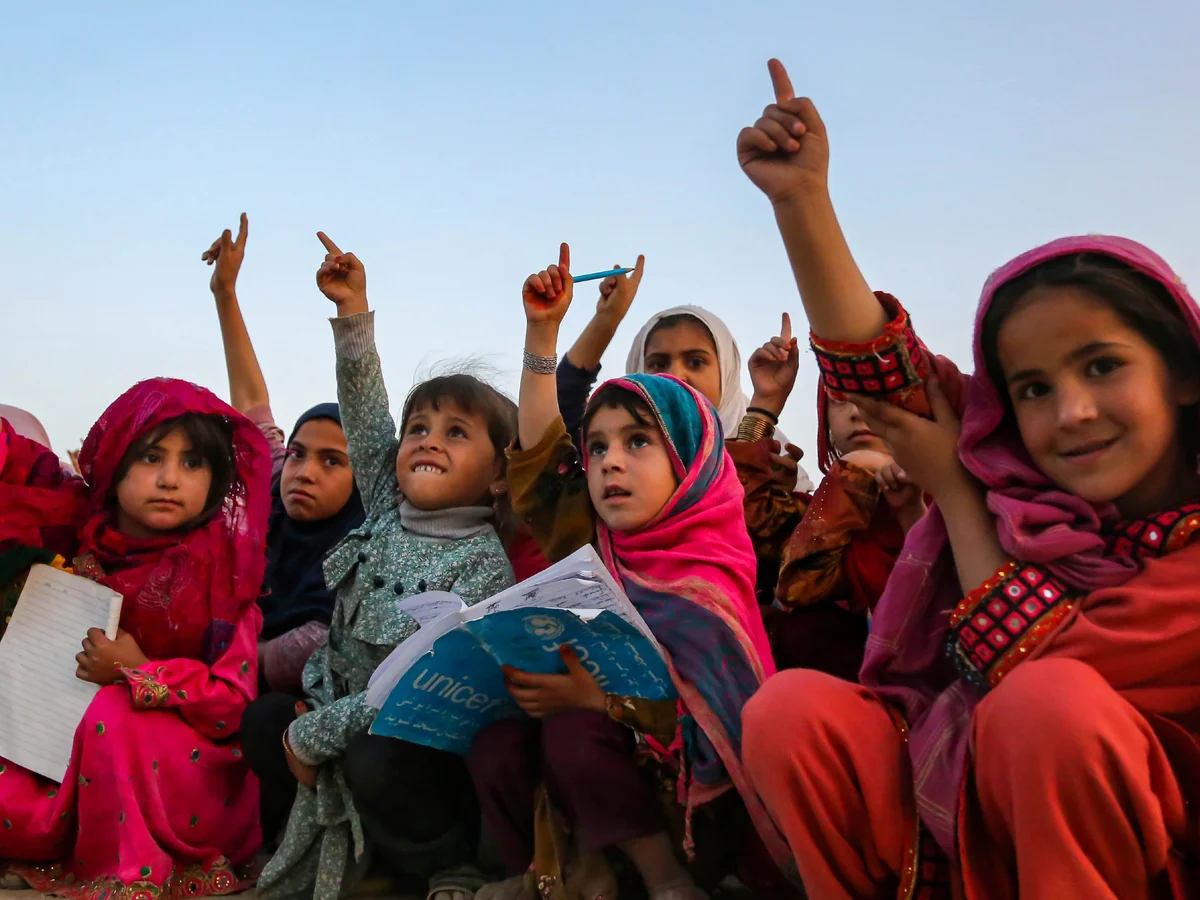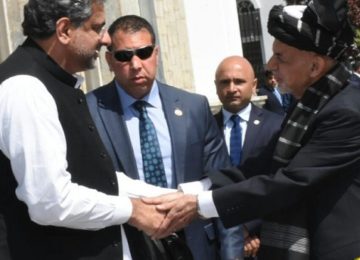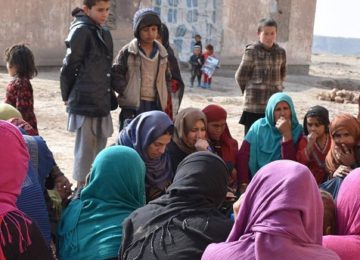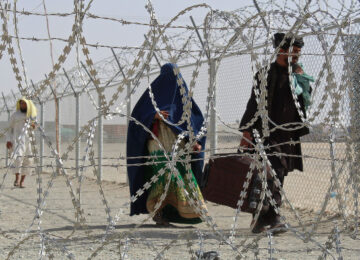By Elsa Imdad
Afghan girls remain trapped in a devastating cycle of oppression and poverty, as the Taliban’s restrictive policies and ongoing humanitarian crises threaten their right to education, and survival.
Three years after the Taliban’s return to power, girls in Afghanistan remain in a deepening crisis, with one in three unable to complete primary school. A recent report by the World Food Programme (WFP) highlights the formidable barriers Afghan girls face, particularly the combination of widespread poverty and oppressive policies. While global attention has largely focused on the Taliban’s ban on secondary education for girls, the problem begins much earlier, as financial hardships push many to drop out of primary school.
For families in Afghanistan, poverty has become a significant obstacle to girls’ education. Struggling to meet basic needs, many are forced to prioritize survival over schooling, withdrawing their daughters from school to reduce household expenses or involve them in labor. The Taliban’s decision to prohibit girls from attending school beyond grade six exacerbates this issue, leaving girls with few opportunities to learn, even at the primary level.
The sharp decline in school attendance since the Taliban’s takeover is a direct reflection of this crisis. Over 1.4 million girls have been deliberately barred from secondary education, and the situation is worsening in primary education as well. In rural areas, where poverty is most acute, families find it increasingly difficult to send their daughters to school. Although initiatives like the WFP’s school snack program provide some incentive for families to keep their children in school, these efforts are insufficient to address the larger structural issues driving girls away from education.
This educational crisis is further exacerbated by a severe decline in humanitarian aid. The United Nations has warned that Afghanistan faces a significant funding shortfall, with the WFP requiring $677 million over the next six months to maintain its operations. More than 12 million Afghans, including nearly 4 million children, face rising food insecurity. While Taliban restrictions create internal obstacles, international donors’ reluctance to fund aid without visible reforms adds another challenge.
Despite widespread condemnation, the Taliban has shown no willingness to reverse its ban on education for girls beyond grade six. Diplomatic efforts and external pressure have so far been ineffective, leaving millions of girls trapped in a cycle of limited access to education. Afghan families, especially in urban areas, are increasingly disillusioned by the regime’s refusal to provide their daughters with the opportunity for education and a better future.
“There is indeed a disconnect between the Taliban and the Afghan people,” says an Afghan religious scholar. It is a chasm that stretches beyond mere political disagreements. The regime’s policies, while raising alarm among the international community, also deepen internal dissatisfaction, raising larger questions about the nature of power and its relationship with the populace. Afghan girls and their families bear the heaviest burden of these decisions, suspended in a moral limbo where neither the Taliban nor the world seems capable of offering a way forward.
“There is no breathing space left for us. Whenever there has been an invasion of Afghanistan or a change in leadership, it is always women who have to pay the cost of turmoil,” says an Afghan women’s rights activist. Her words speak to a deeper truth about history itself—one in which women have so often been the collateral damage of political shifts, their voices silenced as larger forces battle for control.
“The Taliban’s version of Islam, and their interpretation of what it says about women, is driving people away from not only the government but the religion itself. This could lead to another bloody revolution in the future. If you stifle people’s voices, they will always fight back, and in unprecedented ways. Islam does not preach what the Taliban are preaching,” says a senior female Afghan religious scholar.
Caught between a regime unwilling to change and an uncertain international community, the female population in Afghanistan is trapped in a cycle of neglect and repression. Their voices remain unheard. This crisis compels us to ponder: What becomes of a society that denies its girls the chance to learn? How long can such injustice persist before it erodes the very sociocultural fabric of Afghan society? Foremost, the de facto rulers of Afghanistan must confront these questions themselves. The real challenge lies not only in hearing these voices but in finding the resolve to act decisively before they are silenced forever.
AUTHOR

Elsa Imdad is a USG Alumna. She holds a Bachelors in modern languages with an English major and Spanish minor. She has previously been part of American Spaces in Pakistan and now works as a Project Coordinator at the Center for Research and Security Studies. She is also a weekly contributor for Matrix. Her interests include public diplomacy, language teaching, peace and conflict resolution, capacity building for marginalized groups, etc.








